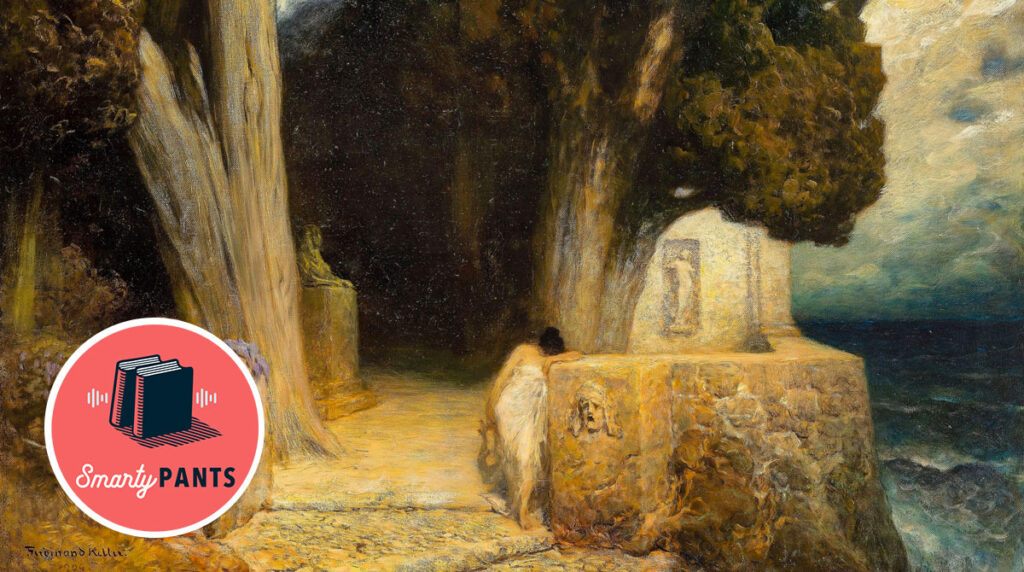
The Greek poet Sappho’s reputation looks something like a parabola: at the height of her powers, her lyrics were so beloved that grammarians quoted them as exemplars of the Greek language; Plato called her the “Tenth Muse.” Then, after a thousand years of exaltation, she tumbled from the pantheon. Today, we know very little of her life and precious few of her works remain, most of them recovered from ancient garbage heaps in the 19th century. The surviving 306 fragments of her verse—dozens of them but a single word or phrase—are compiled in a new and updated translation by classicist Diane J. Rayor, simply titled Sappho, out this month from Cambridge University Press. Rayor, Professor Emerita of Classics at Grand Valley State University, joins us on the podcast to discuss the difficulties—and joys—of rediscovering Sappho and translating her verse into English.
Go beyond the episode:
- Diane J. Rayor’s Sappho: A New Translation of the Complete Works, with an introduction by André Lardinois
- Cambridge University Press has made professional recordings of all of the fragments available for free, performed by Kate Reading
- Read more about the murky provenance of the newest Sappho papyri unearthed in 2014
- The music used in this episode is the song “Seikilos Epitaph,” performed by Lina Palera on the Lyre of Apollo, a recreation of the ancient instrument by the Lyre 2.0 Project
Tune in every week to catch interviews with the liveliest voices from literature, the arts, sciences, history, and public affairs; reports on cutting-edge works in progress; long-form narratives; and compelling excerpts from new books. Hosted by Stephanie Bastek. Follow us on Twitter @TheAmScho or on Facebook.
Subscribe: iTunes • Stitcher • Spotify • Google Play • Acast
Download the audio here (right click to “save link as …”)
Have suggestions for projects you’d like us to catch up on, or writers you want to hear from? Send us a note: podcast [at] theamericanscholar [dot] org. And rate us on iTunes! Our theme music was composed by Nathan Prillaman.

